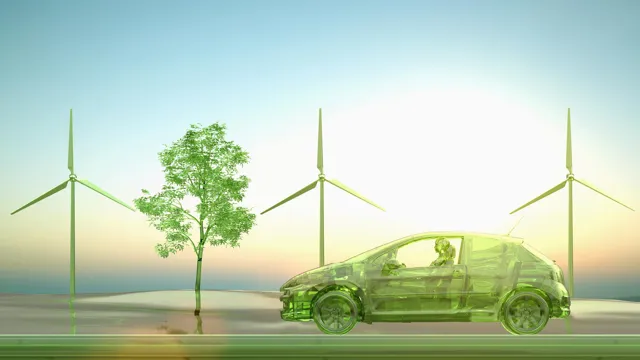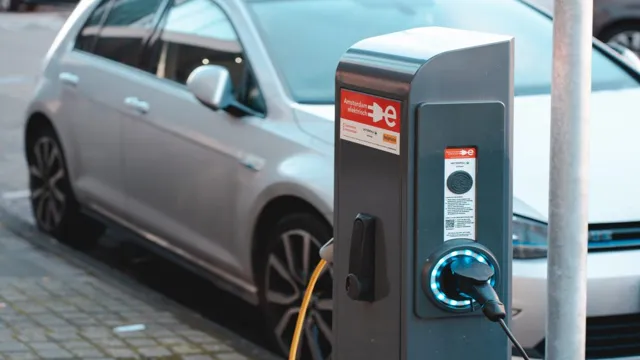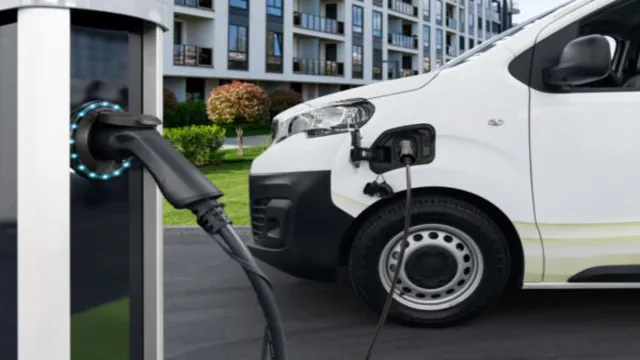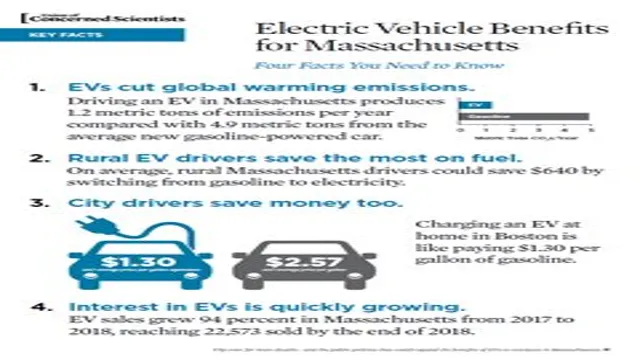The Shocking Truth About Electric Cars: Unveiling Their Environmental Benefits
As our planet faces increasing pressures from climate change, pollution, and depletion of natural resources, more and more individuals are looking for ways to reduce their environmental footprint. One of the most promising solutions is the use of electric cars. By running on electricity instead of fossil fuels, electric cars have the potential to significantly decrease air pollution and greenhouse gas emissions.
But what are the real impacts of electric cars on the environment? In this blog post, we dive deep into the benefits and drawbacks of electric cars and how they can help reduce our impact on the environment.
Zero Emissions
Electric cars have gained popularity for their environmental benefits as they emit zero emissions during operation. This reduction of carbon emissions is essential in mitigating climate change, as burning fossil fuels for transportation is a significant contributor to greenhouse gas emissions. Electric cars use rechargeable batteries to power the electric motor, leading to a decrease in dependency on non-renewable energy sources.
Furthermore, electric cars produce less noise pollution during operation and are more energy-efficient than their gasoline-powered counterparts. Although electric cars are not without their challenges, including the availability of charging stations and the higher cost of production, their environmental benefits make them a viable option for individuals seeking to reduce their carbon footprint. In summary, electric cars offer a sustainable mode of transportation, reducing carbon emissions and helping to mitigate the effects of climate change.
Electric Cars Produce No Air Pollution
Electric cars are an excellent alternative to traditional gas-powered vehicles because they produce no air pollution. The harmful emissions from gasoline engines contribute to air pollution, which is harmful to both our health and the environment. With electric cars, there are no tailpipe emissions, meaning they produce zero emissions.
This is possible because electric cars are powered by electricity stored in batteries, rather than relying on fossil fuels. Additionally, when electric cars are charged using renewable energy sources like wind or solar, they have an even smaller impact on the environment. Electric cars are an excellent way to reduce harmful air pollution, and they continue to improve as technology advances.
So, if you’re looking to reduce your carbon footprint, an electric car might be the perfect option for you!
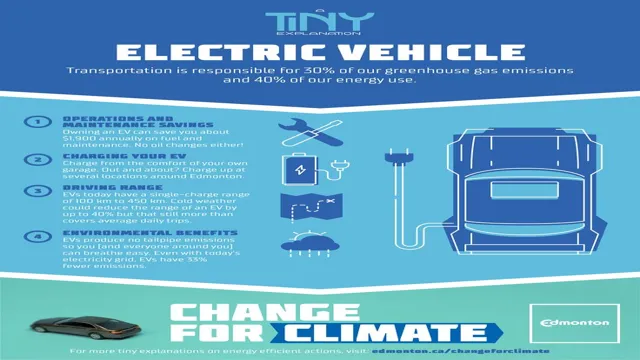
Reduced Carbon Footprint
Reduced Carbon Footprint As concerns about climate change continue to grow, people are becoming increasingly aware of their carbon footprint and the impact it has on the environment. One way to reduce this impact is by striving for zero emissions. This means reducing the amount of greenhouse gases that are released into the atmosphere and finding ways to offset any emissions that can’t be eliminated entirely.
For individuals, this might involve driving a more fuel-efficient vehicle, using renewable energy sources like solar or wind power, or simply reducing the amount of energy they use in their daily lives. For businesses, it might mean investing in more sustainable practices or transitioning to a carbon-neutral business model. Whatever the approach, the aim is always the same: to minimize our impact on the environment and ensure a healthier, more sustainable future for all.
Energy Efficiency
Electric cars offer many environmental benefits, making them a popular choice for eco-conscious drivers. For starters, electric cars are highly energy-efficient, with most models using over 80% of their stored energy to power the wheels. In comparison, gasoline cars typically only use up to 30% of their stored energy, making electric cars much more efficient.
Additionally, electric cars produce zero emissions while driving, reducing air pollution and greenhouse gas emissions. This can lead to significant improvements in air quality, particularly in urban areas where pollution is a major concern. Furthermore, electric cars are also quieter than traditional cars, reducing noise pollution and making for a more peaceful driving experience.
With the increasing availability of charging stations, more people are choosing electric cars for their environmental benefits and energy efficiency.
Electric Cars are Highly Energy Efficient
When it comes to energy efficiency, electric cars are hard to beat. One of the main reasons for this is because electric cars run on electricity, which is a more efficient energy source than gasoline. Gasoline engines only convert about 20% of the energy stored in gasoline into power that moves the car, while electric cars convert about 60-80% of the energy stored in electricity into power that moves the car.
This means that electric cars can travel further with the same amount of energy as a gasoline car, making them much more energy-efficient. Additionally, electric cars also have regenerative braking systems that capture energy from braking and convert it back into electricity to be used to power the car. This further increases their energy efficiency and helps to reduce the overall amount of energy needed to power an electric car.
With rising concern for the environment, energy efficiency is becoming a significant factor that people consider when purchasing a vehicle. Hence, electric cars are gaining more and more supporters every day, and rightly so, given their higher energy efficiency.
Energy Savings and Reduced Dependence on Fossil Fuels
Energy efficiency is a critical component of reducing our dependence on fossil fuels and achieving significant energy savings. It entails optimizing the use of energy within a system or device to reduce waste and increase efficiency. This approach aids in the reduction of energy consumption while maintaining high-performance levels.
There are numerous methods for improving energy efficiency, including the incorporation of smart technology, such as smart thermostats, LED lighting, and energy-efficient appliances. Additionally, employing passive solar design principles, such as using materials that absorb and store heat from the sun, can significantly reduce energy consumption. Energy efficiency is a cost-effective solution that benefits both the environment and the economy.
Investing in energy efficiency measures can pay off in the long run by reducing utility bills while reducing greenhouse gas emissions. By improving energy efficiency, we can reduce our reliance on fossil fuels and move towards a cleaner, more sustainable future.
Reduced Noise Pollution
One of the most significant environmental benefits of electric cars is their contribution to reducing noise pollution. Traditional gasoline-powered vehicles emit a constant roar of noise as they go about their business, contributing to a chaotic and disruptive soundscape in many urban settings. When you compare this to electric cars, which run almost silently, the difference is remarkable.
Not only are electric cars far more peaceful, but they also cut down on the amount of noise pollution that we have to deal with in our day-to-day lives. This is especially important in densely populated cities and residential areas, as it offers a chance for people to experience some much-needed peace and quiet. Plus, it’s not just humans that benefit from reduced noise levels.
Animals that live in urban areas can be very sensitive to noise pollution, so this is one significant way that electric cars can help promote biodiversity in our cities. Overall, we should definitely keep the reduced noise pollution benefits of electric cars in mind when discussing their environmental impact.
Electric Cars Run Quietly and Reduce Noise Pollution
Electric cars, noise pollution When you hear the term “pollution,” you might immediately think of air pollution or water pollution, but noise can also be a form of pollution. Prolonged exposure to noise pollution can lead to hearing damage, stress, and sleep disturbance. That’s why the quiet operation of electric cars is such a game-changer.
Unlike traditional gasoline vehicles, electric cars run quietly, reducing noise pollution in our cities and neighborhoods. Not only do they produce less overall noise, but they also eliminate the loud revving and engine noise associated with older cars. With the increasing number of electric vehicles on the road, we can look forward to a future with less noise pollution, which will benefit our overall well-being and the environment.
Conclusion: Electric Cars are Eco-Friendly
In conclusion, electric cars are not just a trendy mode of transportation, they are a necessary step in reducing our carbon footprint and creating a more sustainable world. By running on electricity, electric cars emit no harmful pollutants into the environment, making them the cleanest and most environmentally friendly option on the road. Plus, thanks to advancements in technology, electric cars are no longer just for the early adopters, but are becoming more accessible and affordable for the masses.
So, if you want to do your part for the environment while also saving money on gas, it’s time to go electric!”
FAQs
What are some environmental benefits of electric cars?
Electric cars have zero emissions, which greatly reduces air pollution and greenhouse gas emissions. They also produce less noise pollution and can improve overall air quality.
How do electric cars impact the environment compared to traditional gas-powered cars?
Electric cars have a much lower impact on the environment than traditional gas-powered cars. They emit fewer pollutants and do not contribute to climate change in the same way that gas-powered cars do.
How do electric cars contribute to sustainability efforts?
Electric cars are a much more sustainable option for transportation as they rely on renewable energy sources like wind and solar power. They also reduce our reliance on non-renewable resources like oil.
What are some long-term benefits of switching to electric cars?
In addition to the environmental benefits, long-term benefits of switching to electric cars include reduced fuel costs, decreased maintenance needs, and increased energy security. Electric cars can also provide economic benefits by creating new job opportunities in the renewable energy sector.

